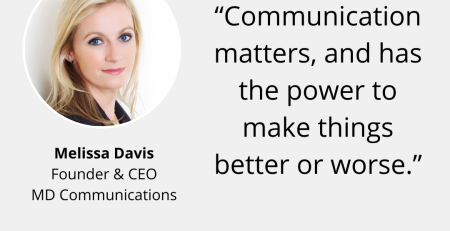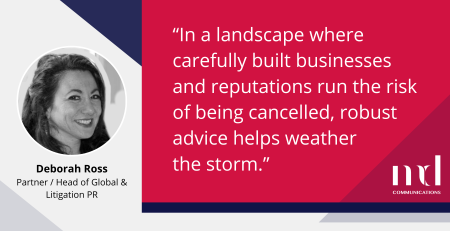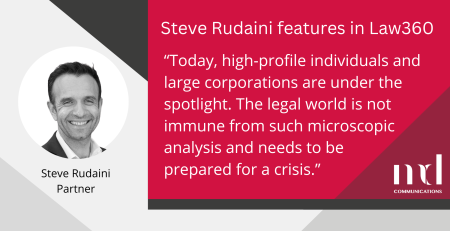Co-authored by Melissa Davis, CEO MD Communications and Natalie McEvoy, Counsel, Slateford.
Reputation problems very rarely come totally out of the blue. That is an advantage – identifying problems earlier gives you more opportunities to achieve better outcomes and build the organisational resilience to handle them.
In our previous blog, How to design your reputation strategy, we examined the preemptive measures you can take now before your reputation takes a hit or is thrust into crisis. In this blog, we follow up on this and discuss what to if you find yourself in the middle of a crisis storm.
“When problems do hit it’s important to figure out who matters to you and what matters to them. That should inform a response strategy. Understand your rights to press back on unfair criticism and misinformation, but where there are real problems your response will be more credible if you can demonstrate you’re addressing the substance.”
Here are the core initiatives you should focus on when a reputational issue strikes.
1. Remember there’s no such thing as your “reputation” – you have lots of different reputations with different groups – with staff as a good employer, customers as a trusted advisor, banks as a good compliance risk, and so on. Understand who matters to you and what matters to them.
2. Be clear on your objectives and what you want to achieve, and design your strategy around that. Press back on misinformation and understand your rights where there is unfairness, but also look at the substance of the issues and ensure the underlying cause is addressed.
3. Appoint a single external channel and spokesperson for your organisation for providing information to the media and other external parties. Depending on the issue, select the most appropriate person to communicate updates to stakeholders. Make sure vital information is shared with authoritative bodies (such as law enforcement or government regulators) before sharing with the media.
4. Prioritise internal communications. Your employees and/or team are as important, if not more so, than external. Be transparent and proactive in keeping them informed as well as establishing what information is confidential. In the absence of hearing directly from you, the likelihood that they will believe rumours and reporting without additional context increases, and could lead to reduced loyalty and a divergence from your values.
5. Tell the truth. This is of utmost importance. This does not mean divulging sensitive or confidential information, but never mislead. That can erode trust quickly. Always correct misinformation quickly and non-defensively.
Read more about our reputation management services
Download our 12 mistakes lawyers make with the media guide












